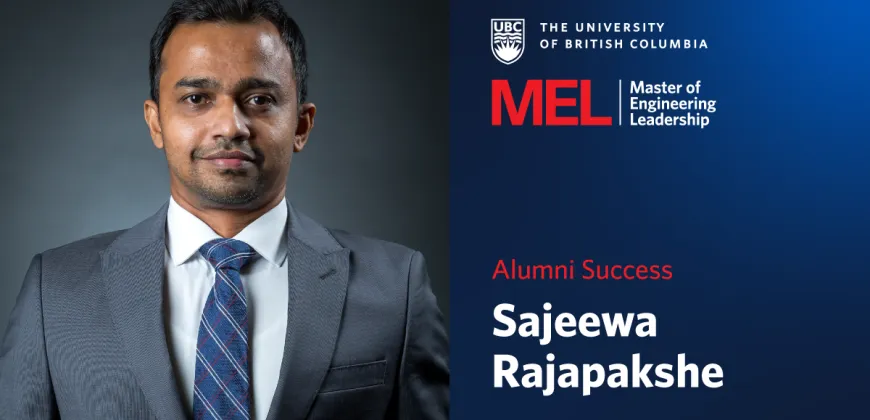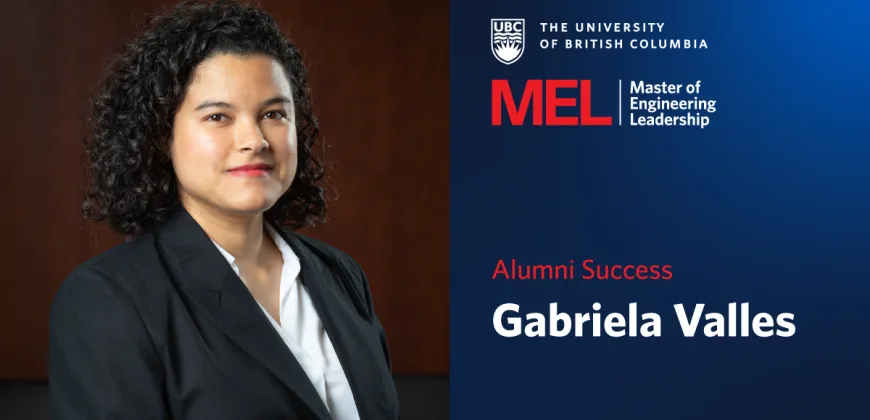Alumni Spotlight: Sajeewa Rajapakshe
With years of experience in manufacturing, Sajeewa returned to school for a master’s degree to expand his knowledge of the latest technologies and processes needed to build a more sustainable future.

A mechanical engineer by training, Sajeewa Rajapakshe excelled in his career in the consumer goods manufacturing industry. He held a variety of roles across Sri Lanka and countries in the Middle East, including as a quality manager (for which he and his team received an award in recognition of the far-reaching impact of their process improvements) and as an internal consultant/audit manager. In this role he reviewed and advised factories and business units across several countries on process controls and drove improvements in manufacturing efficiency and environmental performance.
Throughout his career, Sajeewa continued to invest in his professional growth, achieving an MBA and attaining his Chartered Management Accountant designation from UK.
“Over the years, I understood the power of sustainability and realized that significant impact can only be achieved by engineering innovation and continuous process improvement,” he says.
“I wanted to dig deeper and learn more about sustainable processes and new technologies, like carbon capture, that could help different industries reduce their environmental footprint and be more sustainable.”
He was attracted to the Master of Engineering Leadership (MEL) because it covered technology as well as business and management. “I believed this combination would enable me to develop the most effective technology-based sustainability strategies for organizations, which is crucial when you are trying to scale up new ventures and ideas.”
Technical courses dive into sustainable engineering
Sixty per cent of the courses in the MEL in Sustainable Process Engineering focus on the knowledge needed to develop cleaner products and processes. These include courses in techno-economic analysis, energy engineering and process synthesis, as well as electives on electrochemistry or carbon capture and sequestration.
Sajeewa particularly enjoyed a course on carbon capture and sequestration, taught by Dr. Naoko Ellis and Dr. Sergio Berretta. Students work in teams to evaluate use cases for a carbon capture technology, and Sajeewa and his group conducted a technoeconomic analysis of the market potential of turquoise hydrogen produced through methane pyrolysis.
Another highlight was a course on technology commercialization where students learned the steps to scale up a promising research discovery and bring it to market.
Business courses explore leadership concepts
Forty per cent of the curriculum focuses on business and leadership courses taught by faculty from UBC Sauder’s Robert H. Lee Graduate School.
Although Sajeewa already holds an MBA and has held leadership positions throughout his career, he says there was still much to learn.
Of particular note were discussions about equity diversity and inclusion, decision-making, strategy and leadership styles.
Working directly with a startup
Sajeewa participated in the Creative Destruction Lab, a startup accelerator for early-stage science-based companies. UBC students work with startups, conducting technical analyses and market analysis, as well as providing business development advice.
His team collaborated with Lite-1, a company that is using microorganisms instead of harsh chemicals to create sustainable dyes for textiles. The students presented the results of their analysis to a panel of venture capitalists and successfully persuaded them to invest $50,000 in Creative Destruction Lab funding grants in the company.
“Creative Destruction Lab was a powerful experience,” he says. “My professional background is with a large manufacturing company, and through CDL I’ve complemented that with new insights into entrepreneurial culture and what’s needed for a successful startup.”
Excited about what lies ahead
As the Technology Program Manager for lululemon, Sajeewa is excited to add value to his company with his extensive experience, understanding of leadership, and knowledge of sustainable processes.
